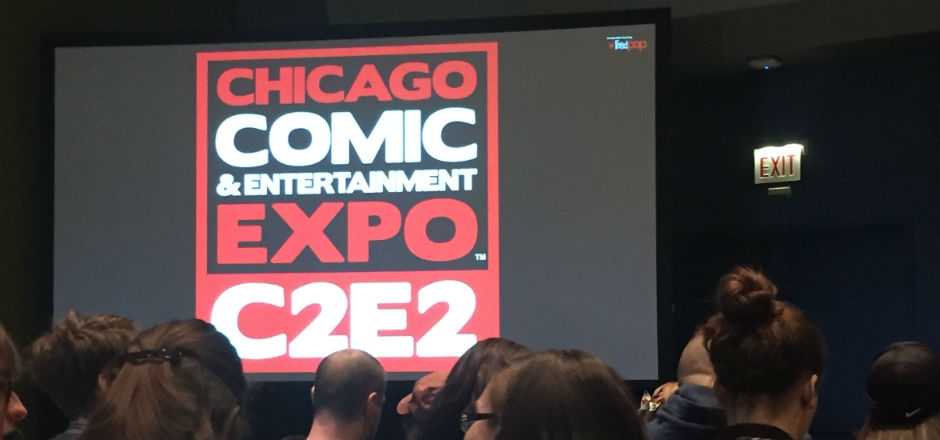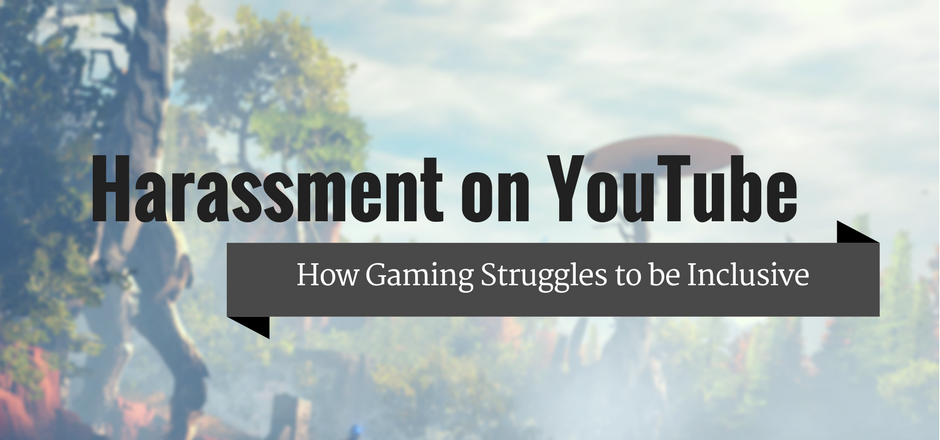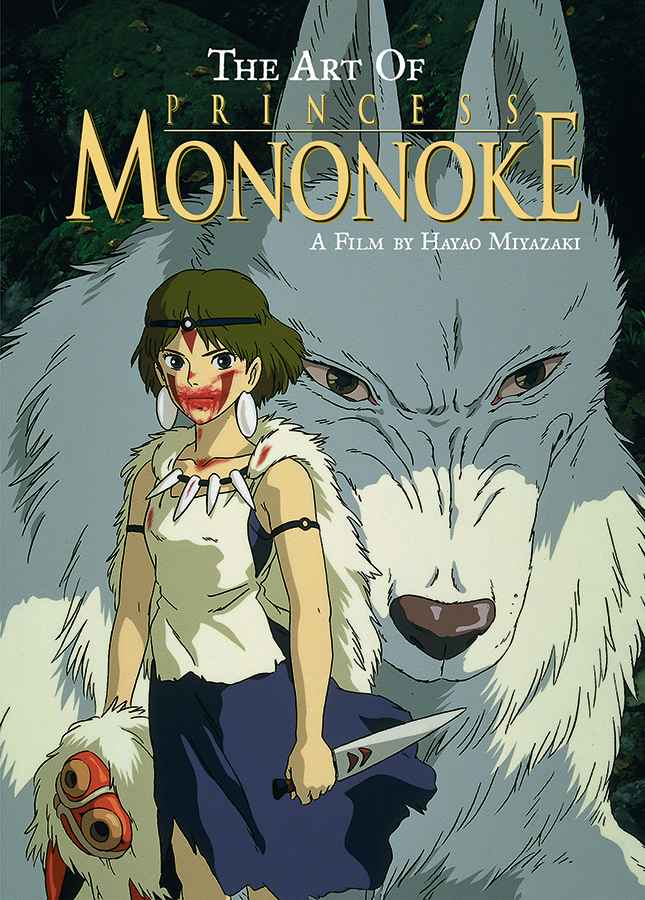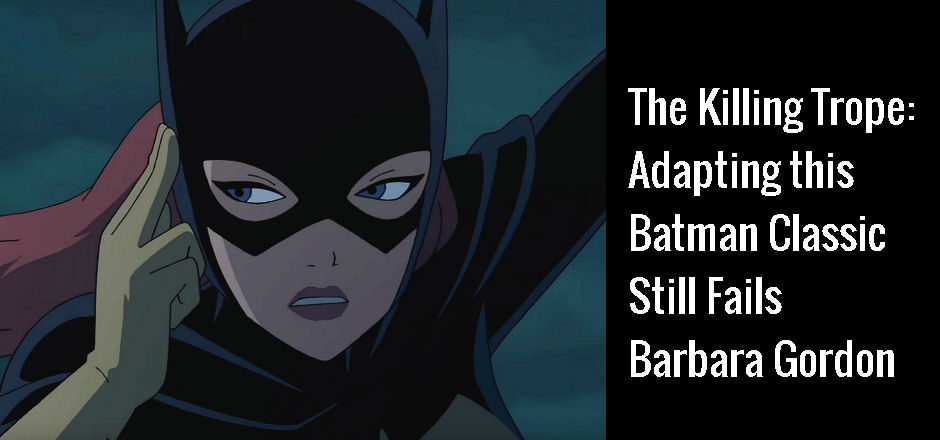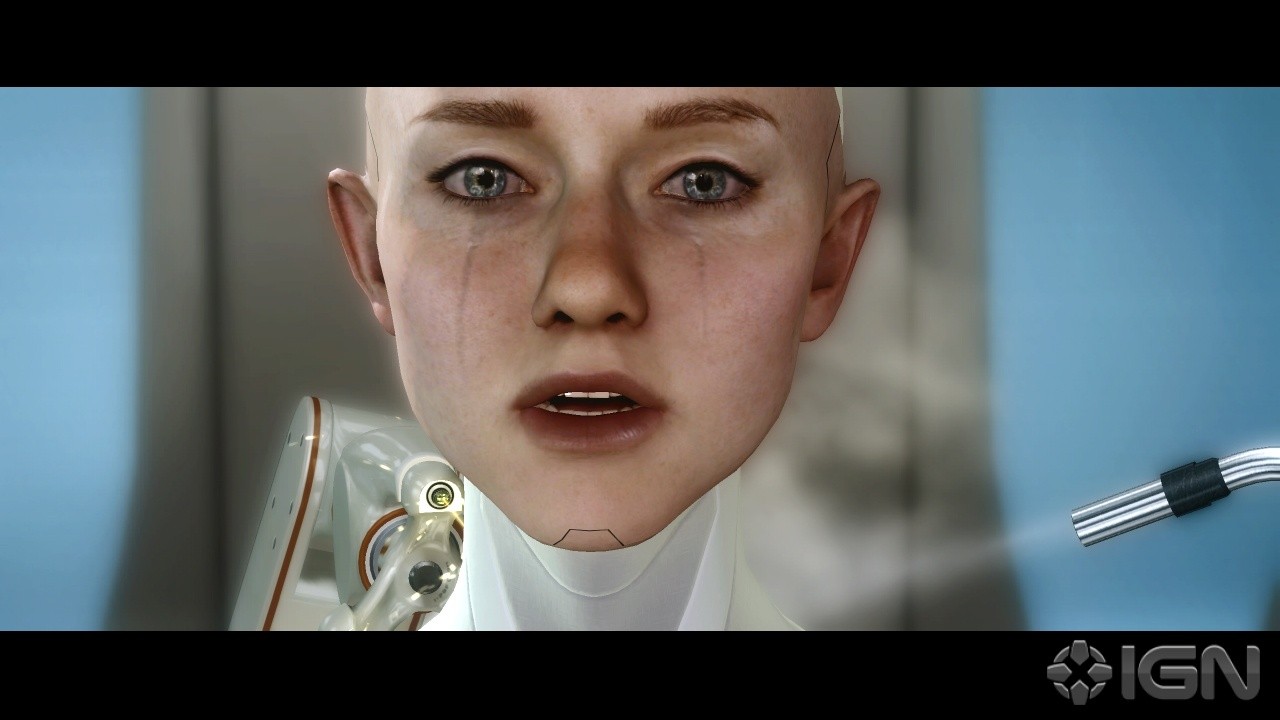The ‘You Fight Like a Girl’ panel was presented by Janet Lee, Katie Monnin, Tish Hayes, and Betsy Gomez, and moderated by Michael Gianfrancesco. There were also two high school students named Kayla and Abby who contributed to the discussion.
The women on the panel all work in fields like publishing and library sciences where they come up against the world of comic books often. Gianfrancesco is a high school English teacher and the two students were selected to participate because they created a podcast about comic books.
The panel began with a discussion of the role of women in comics both as characters and consumers. Abby pointed out that “girls are reading just as much comics as guys are,” but the panelists agreed that the societal perception is that comics are for boys. Monnin, an Associate Professor of Literacy at the University of North Florida and an established academic, mentioned that she finds she often has to prove to other people that she reads and writes about comics because “they don’t believe [her].”
Many panelists pointed to the Comics Code of 1954 as the cause of this perception, which caused many comics to be censored and left super heroes as the main fare for comic book readers, which tend to appeal to a male audience.
Part of the reason for this lack of appeal to female readers is the portrayal of women in super hero stories. As Monnin suggested: “can we work on the costumes?” More women might identify with female super heroes if they weren’t such sexual objects, and had “better weapons, more intense gear” and more complex personalities.
Lee, an illustrator, suggested that “we do away with these things when we have diverse voices.” More people need to be represented in comics than the straight white man, and that won’t happen until more diverse writers are being published.
As Hayes, a librarian, pointed out, we need to work on “writing better women in comics and writing better men,” because ‘traditional’ gender roles aren’t doing anyone any favors. Men and women can both be anywhere on the spectrum of male and female, masculine and feminine.
I think Lee summed up the crux of the discussion when she said “I don’t think it can be measured, the power of seeing someone like you.” It speaks to a very deep need for more populations to be represented in mainstream media; not just in comics, but in books and movies and TV shows as well. Personally, I was touched every time I saw a tiny Rey walking around C2E2 with her family, because it proves this point perfectly.
Gomez suggested that “we need to use our power as fans to buy what we want to see.” It’s on us as consumers to be vocal about the need for more women and minority representation, and to spend our money supporting diverse, subversive art if that’s what we want to see in the world. The controversy over the lack of Rey action figures was brought up as an example of the power of the consumer’s voice.
[blocktext align=”right”]I don’t think it can be measured, the power of seeing someone like you.[/blocktext]Lee said “publishers are reluctant to fund things that aren’t a guaranteed sale,” so we as consumers need to guarantee the sale of media with the characters that we want represented.
As far as the portrayal of women in comics goes, we’ve come pretty far. But we still have a long way to go. Lee said “we need diverse fiction so we can put ourselves in someone else’s shoes,” because literature should help us “re-evaluate the world around us.” The more diverse representation in fiction, the more empathetic the readers will tend to be.
I found this panel extremely interesting because the presenters are all creative women who deal with these issues every day. They aren’t particularly famous or well-known outside of their fields, but they were probably the most valuable expert voices to speak on these topics. I also appreciated the effort to include the voices of young women, who are the ones that will shape the industry in the future. All in all it was a very informative, positive panel to listen to.
—
Laura Jewell writes for Girls in Capes and has a BA in Theatre from Miami University. She currently lives in Chicago and enjoys many fandoms, including her favorites Harry Potter and Doctor Who. Her favorite weekend pastime is curling up with a book and her fifteen-pound orange cat, Orange Cat.
